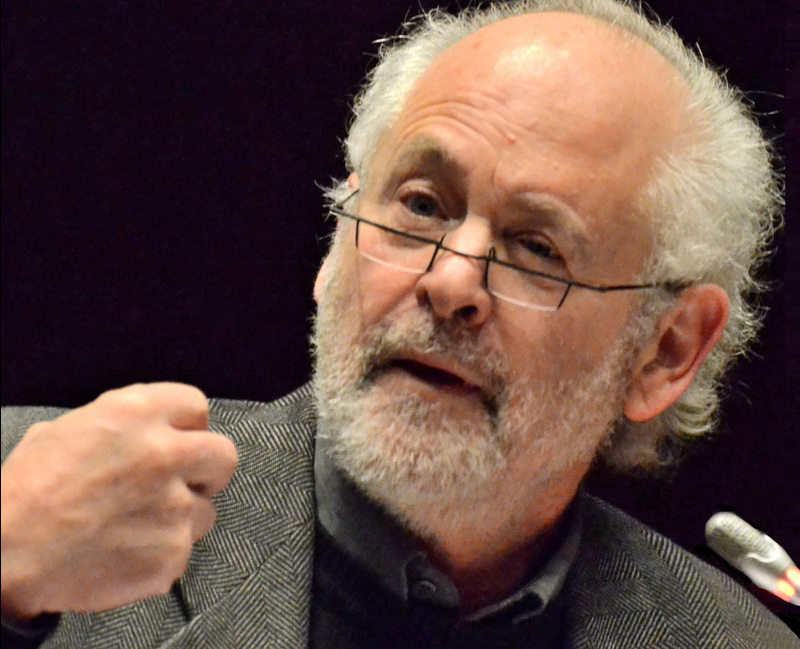Master of Laws – 49 years later
05 November 2018 | Story Di Caelers. Photo Raymondsuttner.com. Read time 6 min.
Professor Raymond Suttner’s thesis, which he withdrew from the University of Cape Town (UCT) 49 years ago because he refused to anonymously cite “listed” communist Professor Jack Simons, will finally earn him his Master of Laws (LLM) on 14 December 2018.
The activist, academic and political analyst, who is today visiting professor and strategic adviser to the Dean of Humanities at the University of Johannesburg, will belatedly see his work on customary law acknowledged.
Suttner broke the news on Twitter, saying he was recently informed that the “thesis I withdrew from UCT in 1969” has been examined, and that he will graduate next month.
He explained that the original document he presented in 1969 had included quotes from leading customary law authority Simons, a former lecturer, senior lecturer and then associate professor in African Studies at UCT.
“But because ‘listed’ communist, illegal to quote and faculty unwilling to be complicit in breaking the law,” Suttner tweeted. “I wasn’t prepared to use work unacknowledged so withdrew it.”
He was approached by UCT’s Public Law Professor Dee Smythe last year, who requested that he submit the work. Although it took him some time to find the document – and there were three pages missing when he did – it was examined and approved.
Never submitted
Suttner said that when he laboriously typed the final version of the thesis in 1969 it was not intended to ever be presented for examination.
“I had withdrawn a draft version and decided that I would finalise it purely for myself, rather than leave it unfinished. I did show it to one or two people in the decades that followed but I never submitted it anywhere,” he wrote in the introduction to his submitted thesis.
The version he submitted is a photocopy, not the original, and features the correction of errors with Tippex correction fluid.
His argument in the thesis, he said, “rests primarily on the changing social conditions, where women were increasingly emerging as independent individuals, quite different from their place in a kinship group headed by a male”.
“In contrast, the members of the Bantu Appeal Court, who were ‘reformers’, relied primarily on certain practices being contrary to natural justice, which was part of the statutory limitation on recognition of customary law.
“Whatever the basis may have been, this was a move, towards consciously developing customary law, that was thwarted,” he wrote.
“He was unhappy about the inclusion of quotations from Professor Jack Simons, who could not, in terms of the law of the time, be quoted because he was a ‘listed’ communist.”
Suttner explained that his supervisor, Professor Donald Molteno QC, saw a draft of the thesis around June or July 1969.
“When we met again after he had read it he was unhappy about the inclusion of quotations from Professor Jack Simons, who could not, in terms of the law of the time, be quoted because he was a ‘listed’ communist.”
Molteno told him that, as a representative of the UCT Senate, he “could not allow this breach of the law”, Suttner recalled, adding that he then withdrew it because he was not prepared to use Simons’ work without acknowledgement.
Smythe said she learnt about the LLM dissertation when she hosted the relaunch of Suttner’s book Inside Apartheid’s Prison (first published in 2001) in 2017. She approached Professor of Public Law Hugh Corder and former Dean of Law Penny Andrews and found them “fully supportive of remedying what they too saw as a grave injustice”.
She then approached Suttner, who took about five months to find a copy – the hand-typed manuscript that he submitted early this year.
‘Remarkable contemporary resonance’
Smythe said they were all very clear that the dissertation had to stand on its own merits, meeting the criteria for the degree.
“Professor Corder and I ... were both very impressed with the breadth and rigor of the work. We felt that it would certainly stand up to the scrutiny of examination.
“In fact, it has remarkable contemporary resonance,” said Smythe.
Smythe and Corder, who is currently acting Dean of Law at UCT, were listed as co-supervisors. They appointed two external examiners, Professor Emeritus Thandabantu Nhlapo, a former senior deputy vice-chancellor at UCT, and Sir Jeffrey Jowell, Emeritus Professor of Public Law at University College London.
They submitted their reports at the end of October, and Smythe confirmed that Suttner will graduate on 14 December.
 This work is licensed under a Creative Commons Attribution-NoDerivatives 4.0 International License.
This work is licensed under a Creative Commons Attribution-NoDerivatives 4.0 International License.
Please view the republishing articles page for more information.










